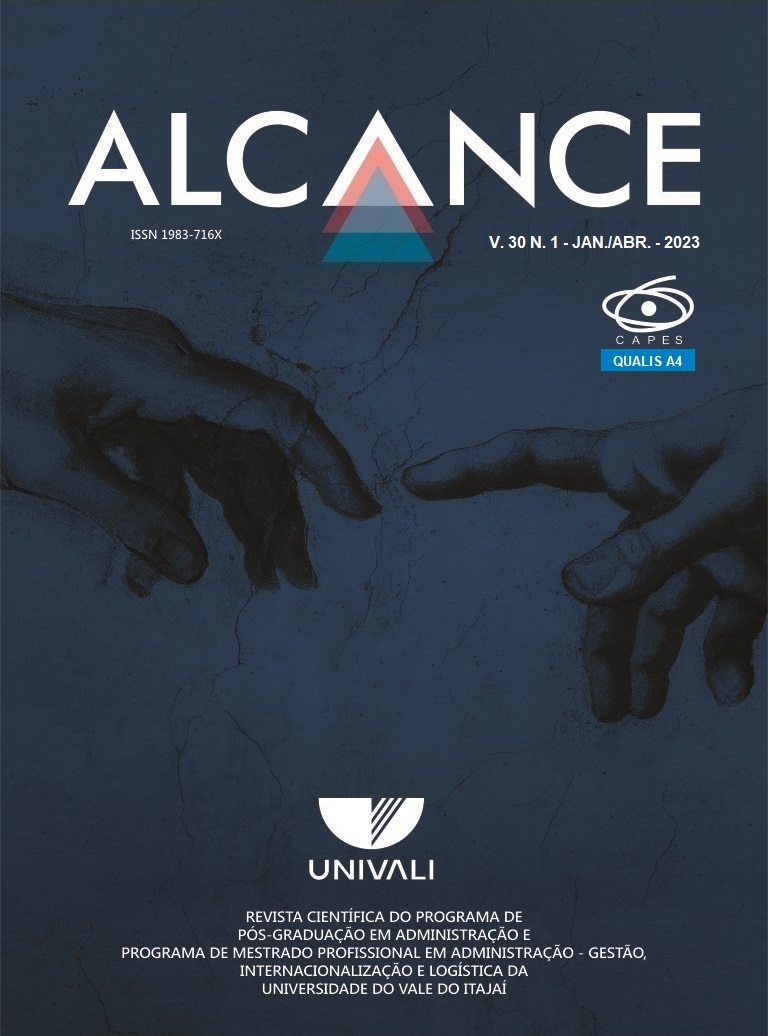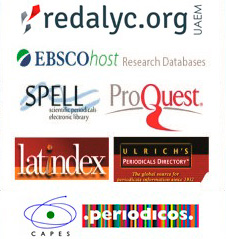MOM I WANT, MOM I WANT TO RULE:
THE DILEMMA OF BABY GUT
DOI:
https://doi.org/10.14210/alcance.v30n1(Jan/Abr).p91-103Keywords:
Management Models, Participatory Management, Management by Results, Decision MakingAbstract
Dilemma: The case focuses on the dilemma of the children’s footwear and clothing manufacturer Baby Gut related to changes in the company’s management, as it is passed from father to son. But with the passing on of responsibility, a conflict emerges within the organization regarding the position and management model to be adopted by the new manager.
Educational objective: The case aims to promote reflection on the characteristics of participatory management models and results-based management, giving the participants concepts of the practice of these models.
Contextualization: The case presents the character Geraldo, former manager of the company and father of Lucas, successor to the position of manager. The father maintained a centralized management that shifted the control of decision-making to a purely strategic level. Lucas, when faced with the challenge of managing the company, must decide whether to follow the management model practiced by his father (which, it should be said, has had positive results so far), or follow a different path, one that he believes will contribute to solving some longstanding problems as well as some current and future ones.
Main theme: The case contributes to the business dilemma of whether to choose a participatory management model or management by results, and important structure for the company's growth.
Target Audience: The case can be applied to undergraduate and graduate courses in administration and management, especially in disciplines involving business management, entrepreneurship, and organizational strategies.
Originality/value: The case encourages reflection on theories of centralized management models -- participatory or by results – providing a basis on the subject for decision making.
References
Amorim, F. & Brant, L. C. (2021). Atenção materno-infantil em uma unidade básica de saúde: contribuições da gestão participativa. Revista de Administração Hospitalar e Inovação em Saúde, 18(2), 1-19. DOI: 10.21450/rahis.v18i2.6664.
Baylão, A. L. S., Cherrine, L., & Schettino, E. M. O. (2014). Gestão Participativa nas Organizações: uma Via de Transformação e Aprendizagem. Anais do XI Simpósio de Excelência em Gestão e Tecnologia - SEGeT, Faculdades Dom Bosco, Resende-RJ.
Baylão, A. L. S. & Rocha, A. P. S. (2014). A importância do processo de recrutamento e seleção de pessoal na organização empresarial. Anais do XI Simpósio de Excelência em Gestão e Tecnologia - SEGeT, Faculdades Dom Bosco, Resende-RJ.
Bonome, J. B. V. (2009). Teoria Geral da Administração. Curitiba: IESDE Brasil.
Candido, R. F., Machado E Silva, M. T. F.., & Zuhlke, R.F. (2008). Implantação de gestão por processos: estudo de caso numa gerência de um centro de pesquisas. Anais do XXVIII ENEGEP-Encontro Nacional de Engenharia de Produção, Rio de Janeiro.
Caravantes, G. R. (1977). Administração sistêmica por objetivos e resultados: (ASPOR) - instrumento de desenvolvimento organizacional. Revista de Administração Pública, 11(2), 61-109.
Chagas, F., Passos, F. U., & Figueiredo, P. (2021). Maturity of project teams and the accuracy of the delivered projects in achieving goals. Gestão & Produção, 28(4), 1-29. DOI: 10.1590/1806-9649-2021v28e77.
Gomes, E. G. M. (2009). Gestão por Resultados e eficiência na Administração Pública: uma análise à luz da experiência de Minas Gerais. Tese de Doutorado. Escola de Administração de Empresas de São Paulo, EAESP/FGV, 187 p.
Lodi, J. B. (1970). Administração por objetivos: um balanço. Revista de Administração de Empresas, 10(1), 95-130. DOI: 10.1590/S0034-75901970000100006.
Lodi, J. B. (1969). Os riscos da administração por objetivos. Revista de Administração de Empresas, 9(3), 29-42. DOI: 10.1590/S0034-75901969000300002.
Mororó, B. O. (2008). Modelagem Sistêmica do Processo de Melhoria Contínua de Processos Industriais Utilizando o Método Seis Sigma e Redes de Petri. Dissertação de Mestrado em Engenharia, Escola Politécnica da Universidade de São Paulo, São Paulo, SP.
Parolin, R. H., & Albuquerque, L. G. (2011). Gestão estratégica de pessoas para a inovação: o caso da Frimesa Cooperativa Central. Revista de Administração da Universidade Federal de Santa Maria, 4(1), 105-124.
Rodrigues, R. F., Oliveira, H. C. V., Trepim, D. M., Paixao, C. H. & Pinto, A. P. E. F. (2019). The management by processes as business strategy of continuous improvement. Journal of Lean Systems, 4(1), 22-42.
Vergara, S. C. (2004). Projetos e Relatórios de Pesquisa em Administração (5ª ed.). São Paulo: Editora Atlas.
Vieira, P. R. C. (2021). Administração da produção: da revolução industrial à indústria 4.0. Rio de Janeiro: Autografia.
Downloads
Published
Issue
Section
License
Copyright (c) 2023 Revista Alcance

This work is licensed under a Creative Commons Attribution 4.0 International License.
In this statement of responsibility, I/we certify that I/we participated in the preparation of the attached article, thus making my/our responsibility for its content public. I/we declare that we have not omitted any links or financing agreements between me/us and entities and/or institutions that may have an interest in the publication of this article. I/we certify that the article is original and the work, either in total or in part, or any other work of my/our authorship with substantially similar content, has not been nor will be sent in any format (printed or electronic) to another periodical while its publication is being considered by Revista Alcance. In this consent form, the associated authors give permission to Revista Alcance, in the case of approval by its Editorial Board, to publish the attached article in electronic copy in a regular edition of the journal and to load it to the database.

